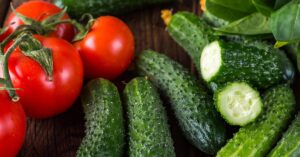
In January-October 2025, Ukraine increased imports of tomatoes by 4.3% to 81.82 thousand tons and cucumbers by 13.6% to 109.56 thousand tons compared to the same period last year, according to the State Customs Service.
According to the published statistics, in monetary terms, tomato imports increased by 18.2% to $16.92 million during the reporting period, and cucumber imports increased by 30% to $23.39 million.
The main imports of tomatoes at this time came from Turkey (64.3% of all supplies), Poland (11.7%), and the Netherlands (11.18%). The top three suppliers of cucumbers to Ukraine were Turkey (88.2%), Spain (3.7%), and Finland (2%).
A year ago, the main suppliers of tomatoes to Ukraine in January-October were Turkey (73.6%), Poland (12.3%), and Morocco (5.9%), while the main suppliers of cucumbers were Turkey (85.2%), Poland (4%), and the Netherlands (3.1%).
Tomato exports in January-October this year amounted to 393 tons, compared to 301 tons a year ago. This year, they were purchased by Moldova (60.6%), Poland (36.4%), and Singapore (0.8%), while last year they were purchased by Moldova (87.4%), Lithuania (7.6%), and Malaysia (1%).
In the first 10 months of 2025, 2.44 thousand tons of Ukrainian cucumbers were supplied to foreign markets, compared to 1.01 thousand tons in the same period last year. They were most actively purchased by Poland (52.3%), Estonia (37.5%), and Moldova (8%). A year ago, the top three were the same, but their shares in the procurement structure differed: Estonia accounted for 54.7% of supplies, Poland for 26.3%, and Moldova for 10.5%.
As reported, in July 2025, Ukraine introduced anti-dumping duties on imports of fresh cucumbers and tomatoes from Turkey at 20.1% and 26.9%, respectively, for a period of five years. These measures were applied to protect Ukrainian producers from dumped imports, which caused damage to domestic greenhouse farms.
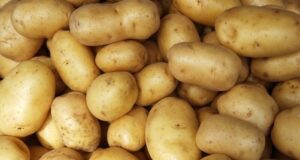
Ukraine imported 123,140 tons of potatoes in January-October 2025, which is 5.1 times more than in the same period last year, according to the State Customs Service.
According to published statistics, in monetary terms, potato imports increased 4.8 times, to $66.086 million, compared to $13.69 million a year ago. The main imports came from Poland (36.9% of supplies in monetary terms), Egypt (13.7%), and the Netherlands (11.6%).
At the same time, potato exports from Ukraine decreased by 13.4% to 2.14 thousand tons during the reporting period, while in monetary terms, sales were more profitable and brought in 2.4% ($521 thousand) more revenue than last year. The main buyers of Ukrainian potatoes were Moldova (58.5% of all exports), Azerbaijan (38.6%), and Singapore (0.6%).
In October 2025, Ukraine imported 359 tons of potatoes, which is 11.4 times (4,090 tons) less than in the same period last year, while exports increased 4.6 times (269 tons).
As reported, Ukraine had a poor potato harvest in the 2024 season due to drought, extremely high temperatures, and a shortage of seed material.
Deputy Minister of Economy, Environment, and Agriculture Taras Vysotsky noted in a podcast by the Center for Economic Strategies that in 2025, the vegetable harvest in Ukraine will be sufficient and even greater than last year, so no shortage is expected in this sector.
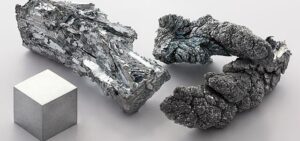
Imports of zinc and zinc products to Ukraine in January-October 2025 decreased by 8% to $45.52 million, while exports tripled to $1.14 million.
In October, imports amounted to $4.3 million, exports — $0.19 million.
In 2024, zinc imports increased by 27.5% to $58.61 million, and exports increased 3.4 times to $0.56 million.
Pure metallic zinc is used to recover precious metals, protect steel from corrosion, and for other purposes.
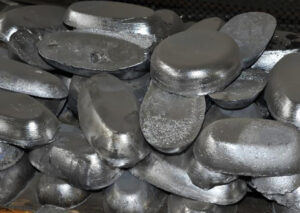
Ukraine sharply increased imports of lead and lead products—by 8.9 times, to $6.89 million in the first ten months of 2025.
At the same time, exports fell by 16.4% to $8.17 million.
For comparison, in 2024, lead imports increased 2.4 times to $2.39 million, while exports fell by almost a quarter to $11.4 million.
Lead is currently mainly used in the production of lead-acid batteries for the automotive industry. In addition, lead is used in the manufacture of bullets and certain alloys.
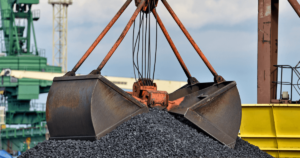
In January-October of this year, Ukraine reduced imports of coke and semi-coke in physical terms by 4.1% compared to the same period last year, to 557,451 tons.
According to statistics released by the State Customs Service (SCS) on Wednesday, coke imports in monetary terms for this period decreased by 9.6% to $188.829 million. It was mainly imported from Poland (92.36% of supplies in monetary terms), Indonesia (5.07%), and the Czech Republic (2.54%).
During this period, Ukraine exported 3 tons of coke worth $2,000 to Albania.
As reported, Metinvest suspended the operation of the Pokrovsk Coal Group in January this year due to changes in the situation on the front line, electricity shortages, and the deterioration of the security situation.
Last year, Ukraine increased its imports of coke and semi-coke in physical terms by 2.01 times compared to 2023, to 661,487 thousand tons, importing it mainly from Poland (84.76% of supplies in monetary terms), Colombia (7.74%), and Hungary (2.69%). In monetary terms, imports increased by 81.9% to $235.475 million.
In 2024, the country exported 1,601 thousand tons of 84.76% coke worth $368 thousand to Moldova (99.18%) and Latvia (0.82%), while in January, March, October, and November 2024, there were no exports, whereas in 2023, they amounted to 3,383 thousand tons worth $787 thousand.

In January-October of this year, Ukraine increased imports of aluminum ore and concentrate (bauxite) in physical terms by 58% compared to the same period last year, to 31,344 thousand tons.
According to statistics released by the State Customs Service (SCS) on Wednesday, during this period, bauxite imports in monetary terms increased by 31.2% to $3.518 million.
At the same time, imports were mainly from Turkey (80.96% of supplies in monetary terms), China (16.66%), and Guyana (2.39%).
Ukraine did not re-export bauxite in 2025, as in 2024 and 2023.
As reported, in 2024, Ukraine increased its imports of bauxite in physical terms by 77.4% compared to 2023, to 35,173 thousand tons, and in monetary terms by 74%, to $4.107 million. Imports were mainly from Turkey (78.48% of supplies in monetary terms), China (19.48%), and Spain (1.9%).
In 2023, Ukraine imported 19,830 thousand tons of bauxite worth $2.360 million.
In 2022, Ukraine reduced imports of aluminum ores and concentrates (bauxite) in physical terms by 81.5% compared to the previous year, to 945,396 thousand tons. Bauxite imports in monetary terms decreased by 79.6% to $48.166 million. Imports were mainly from Guinea (58.90% of supplies in monetary terms), Brazil (27.19%), and Ghana (7.48%).
Bauxite is an aluminum ore used as a raw material for producing alumina, which is then used to produce aluminum. It is also used as a flux in ferrous metallurgy.
Bauxite is imported into Ukraine by the Mykolaiv Alumina Plant (MAP).